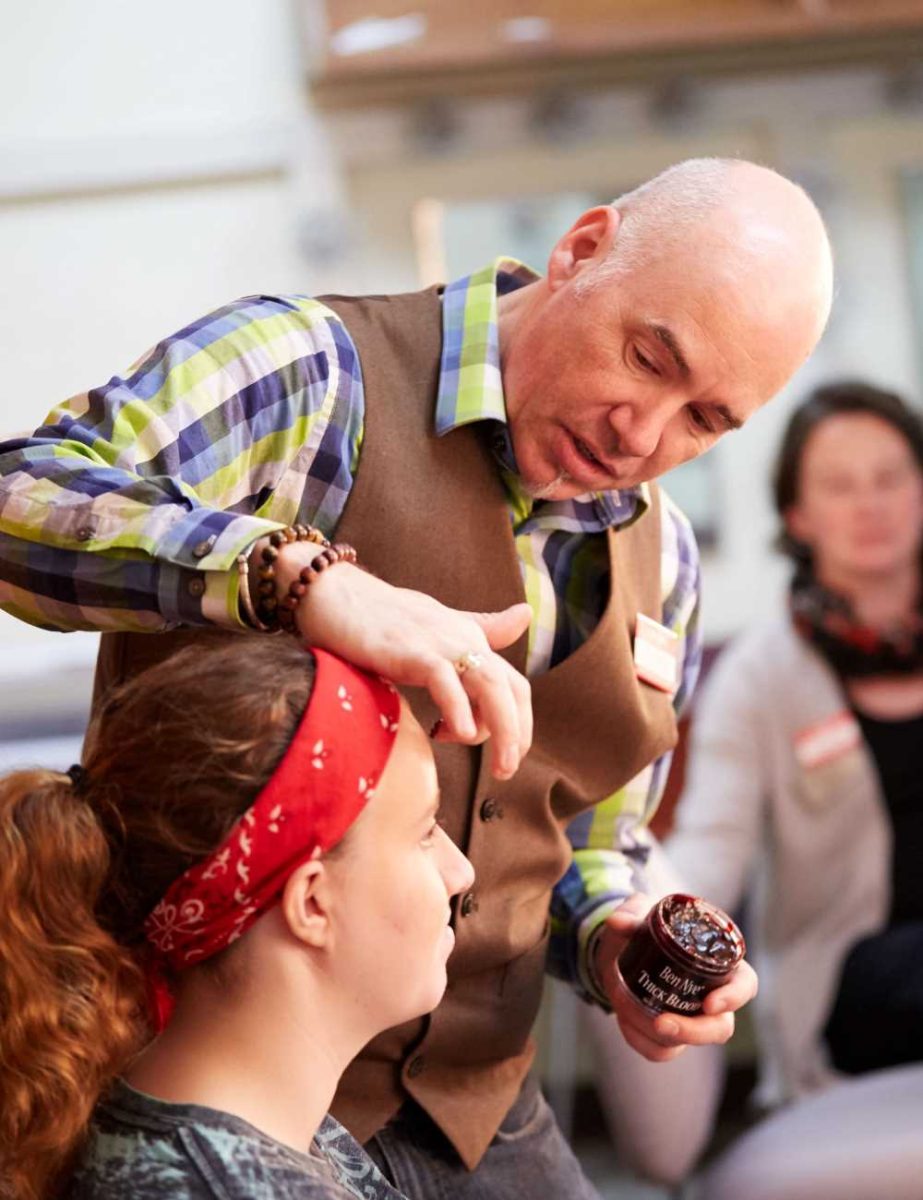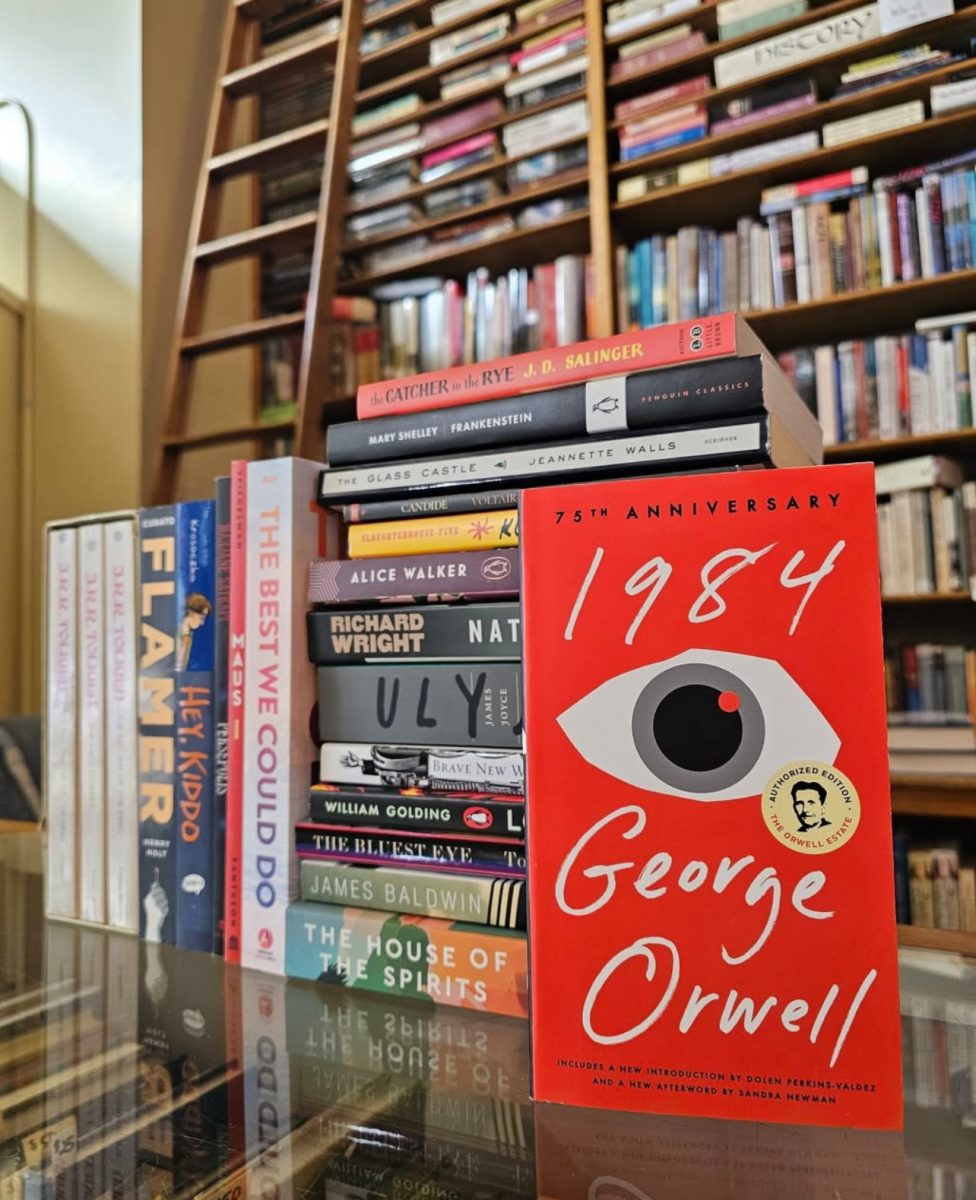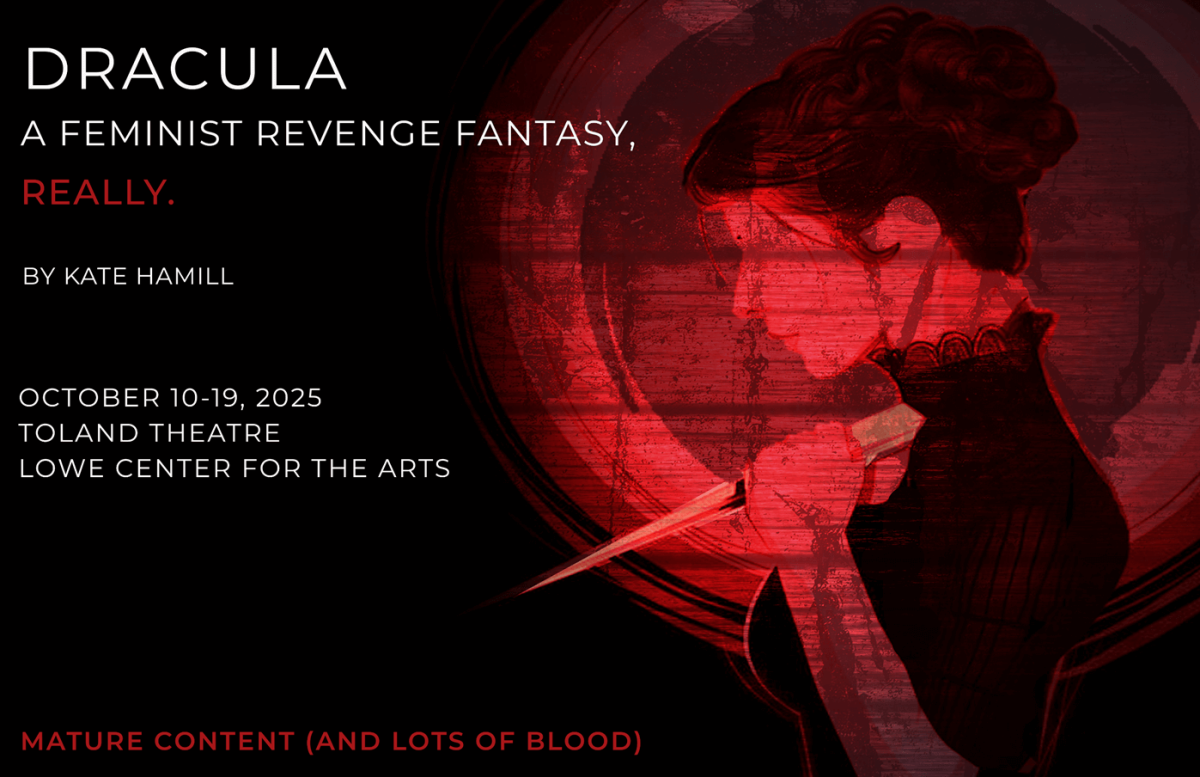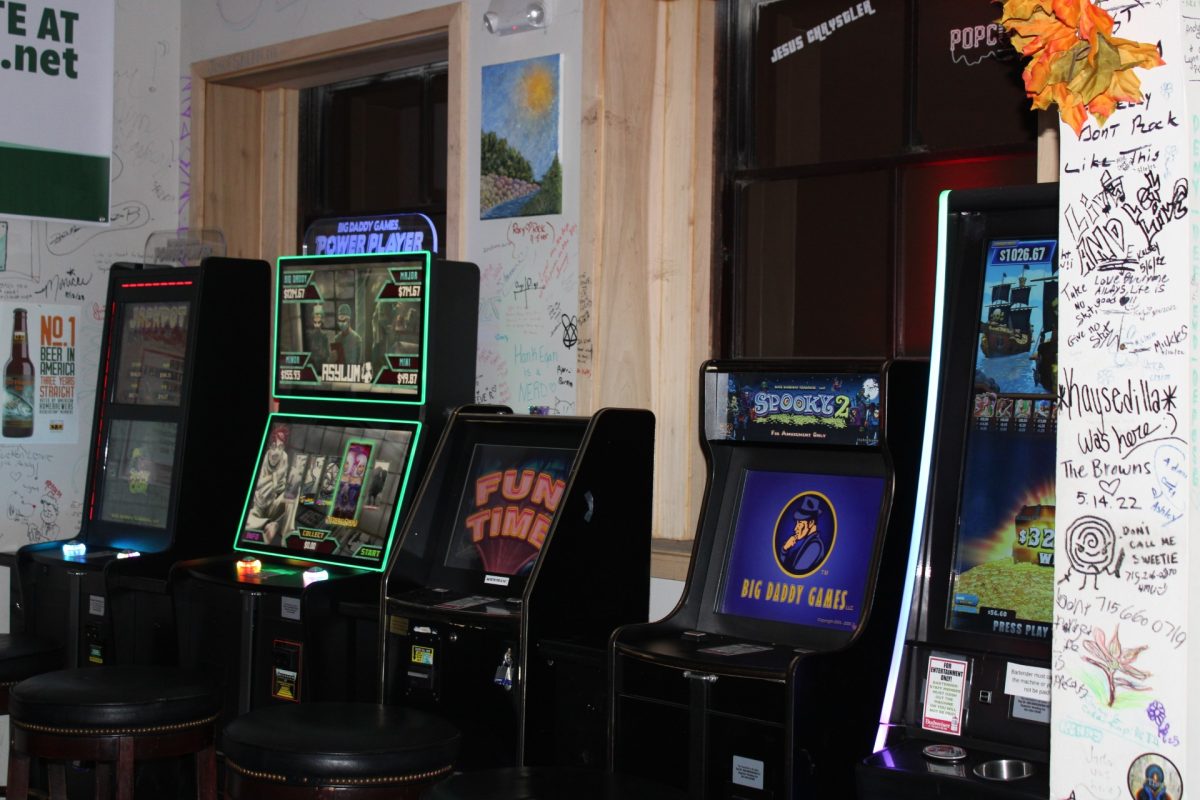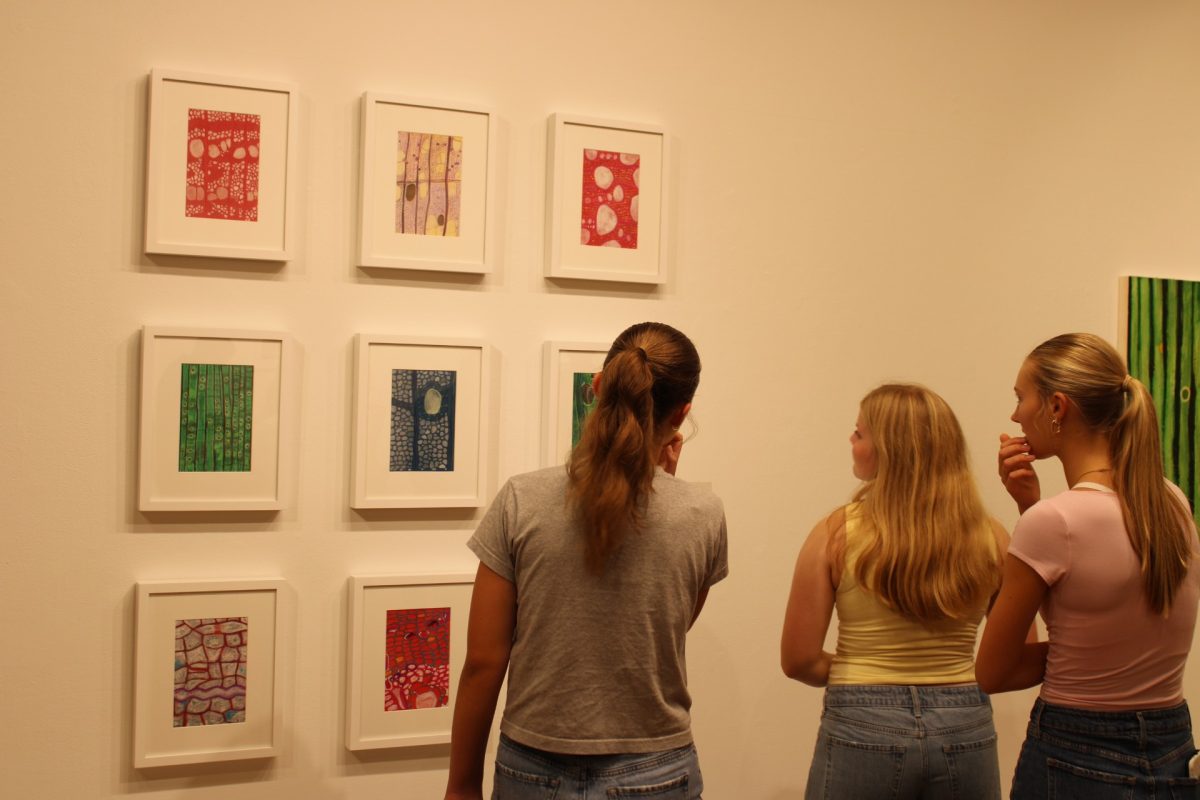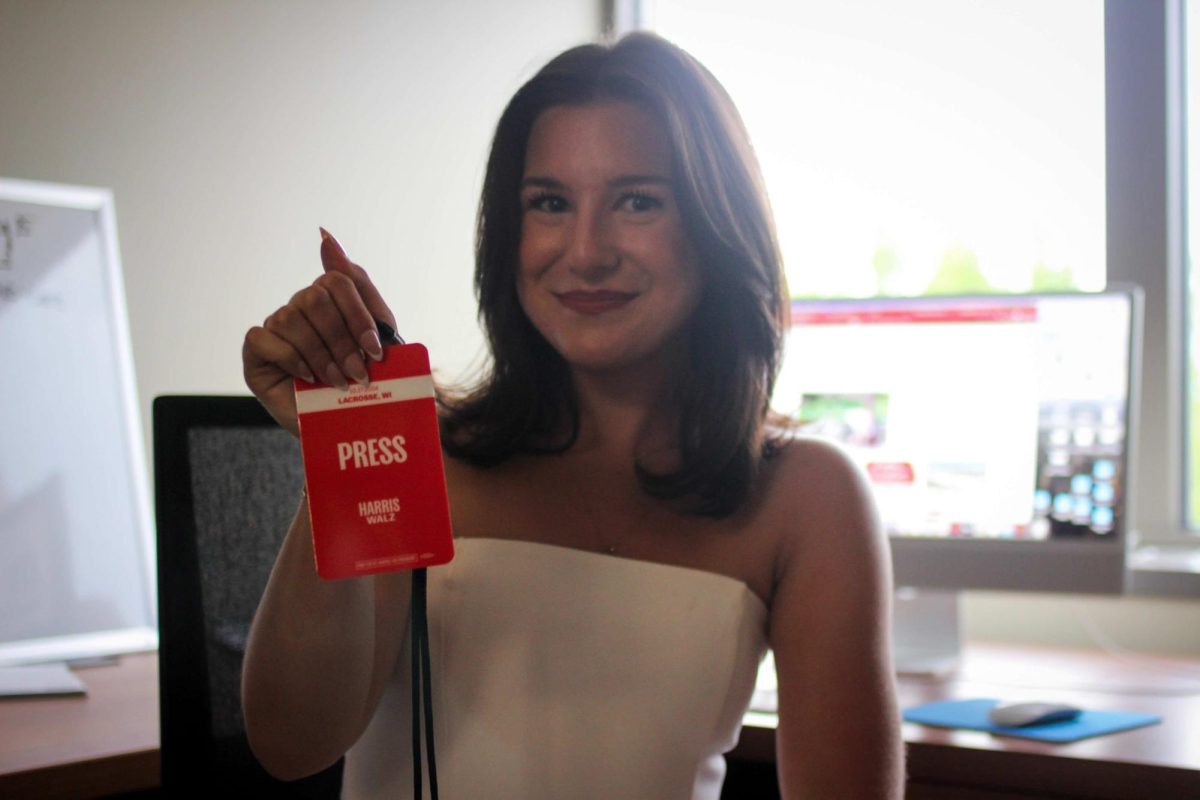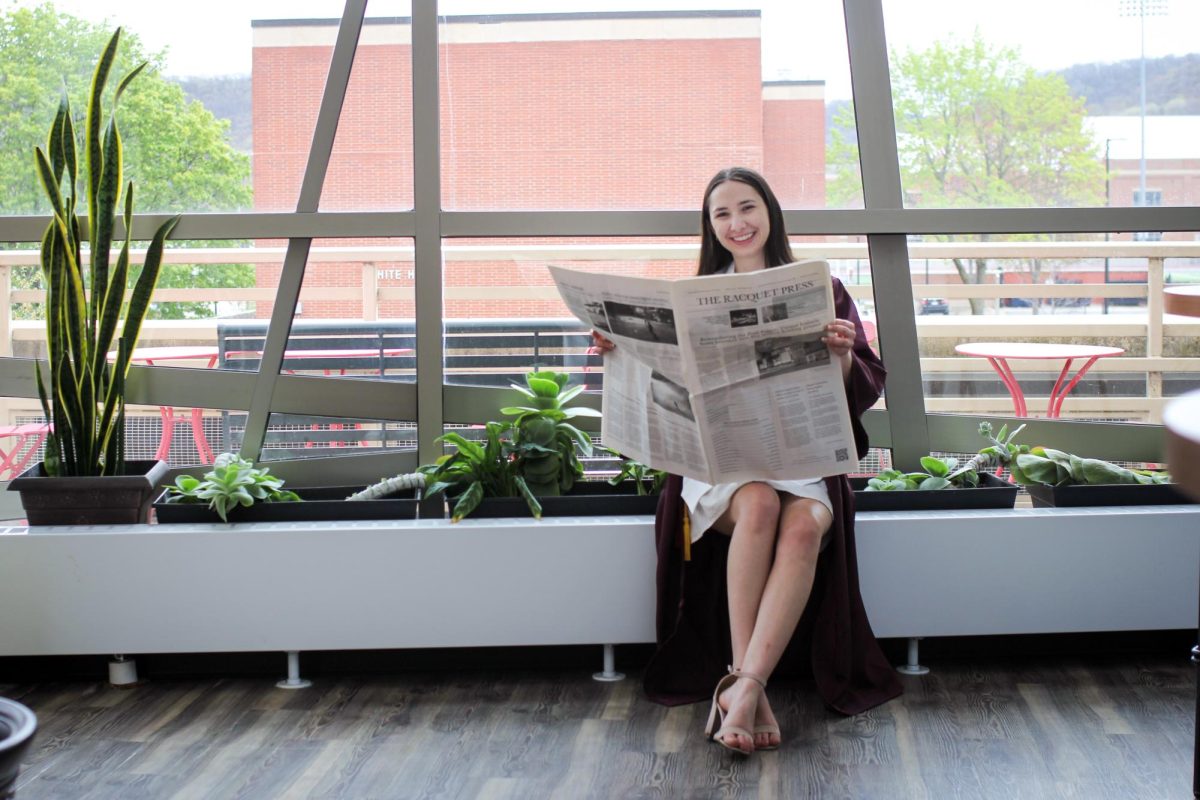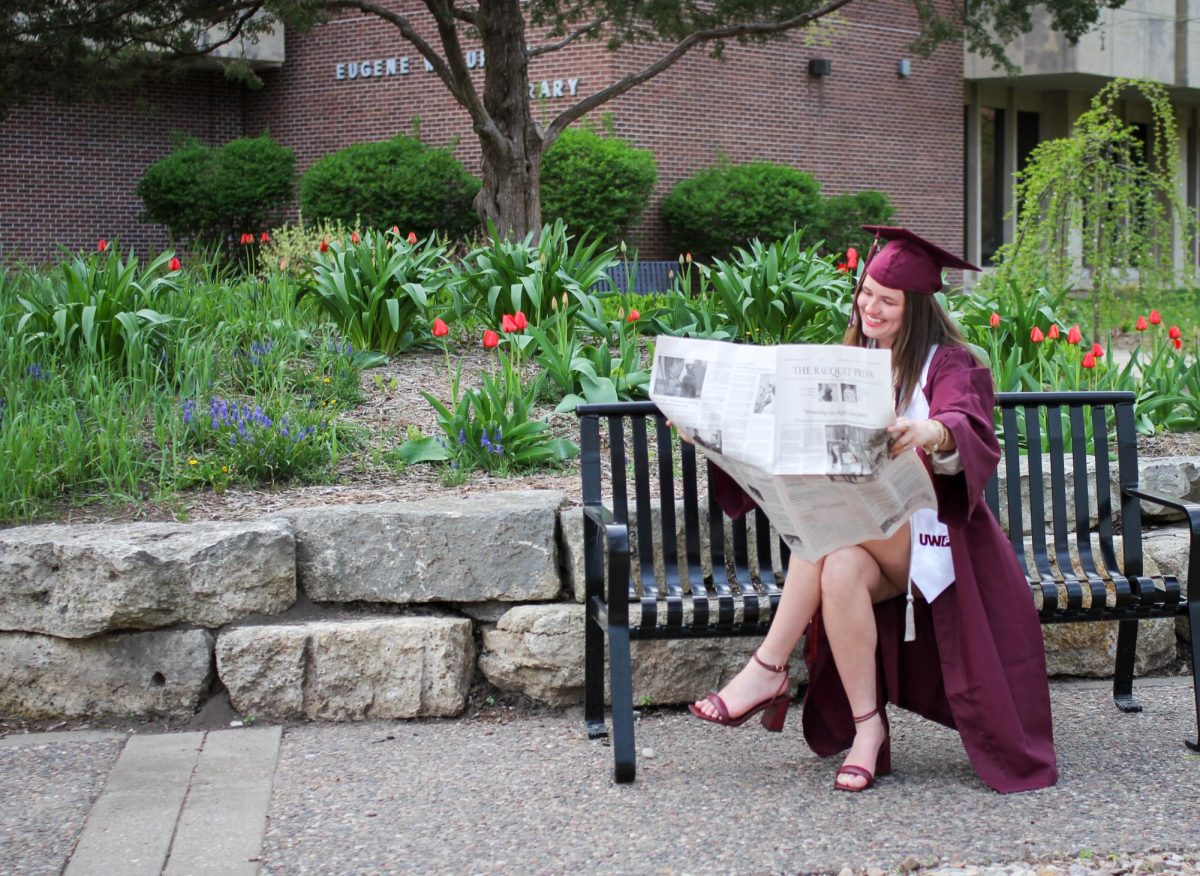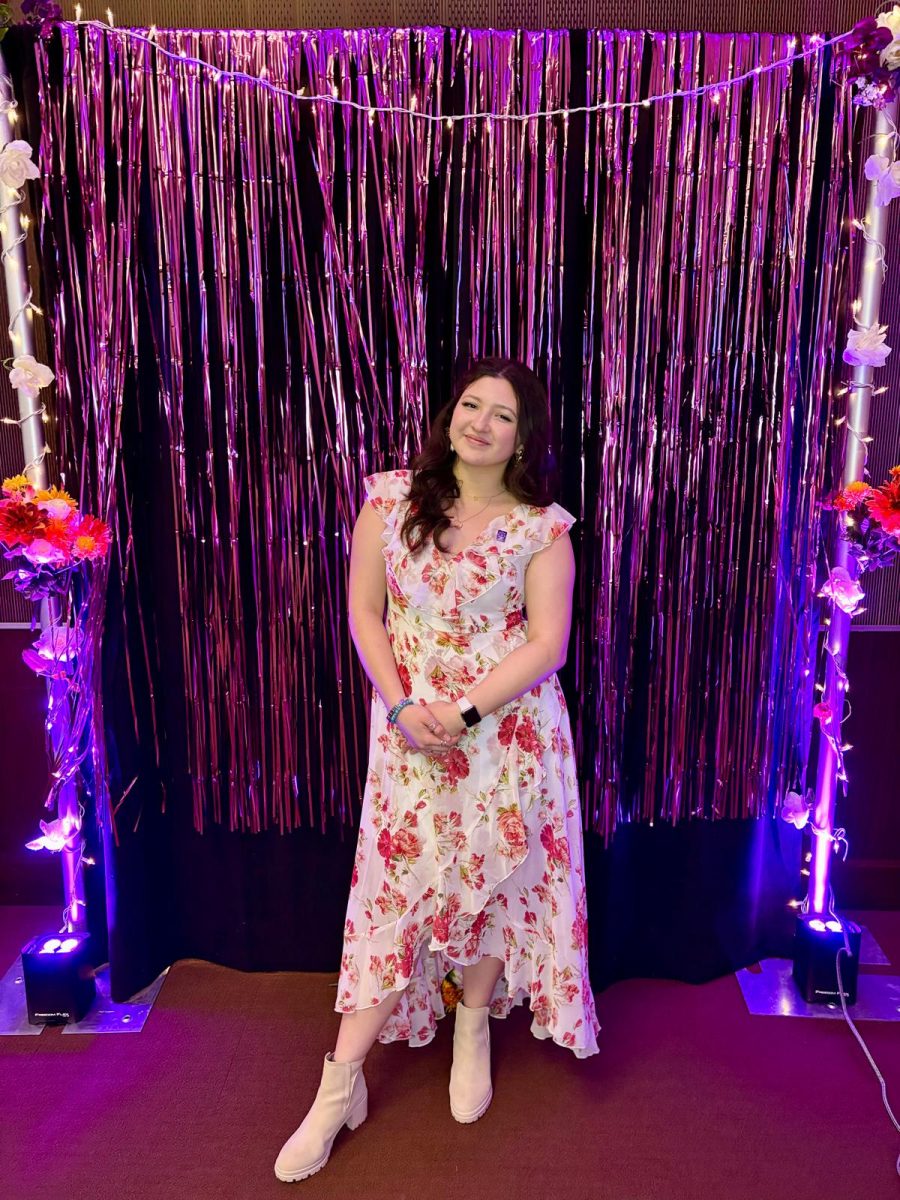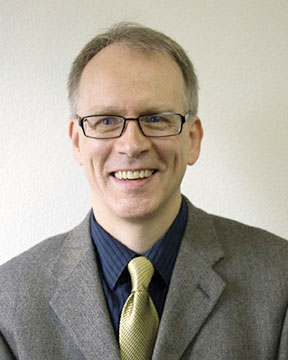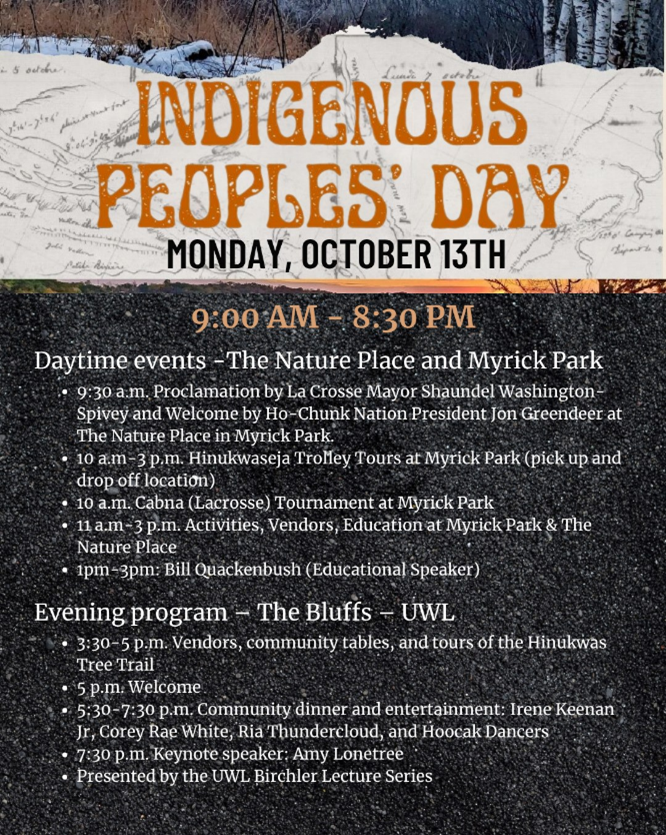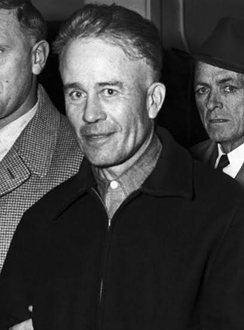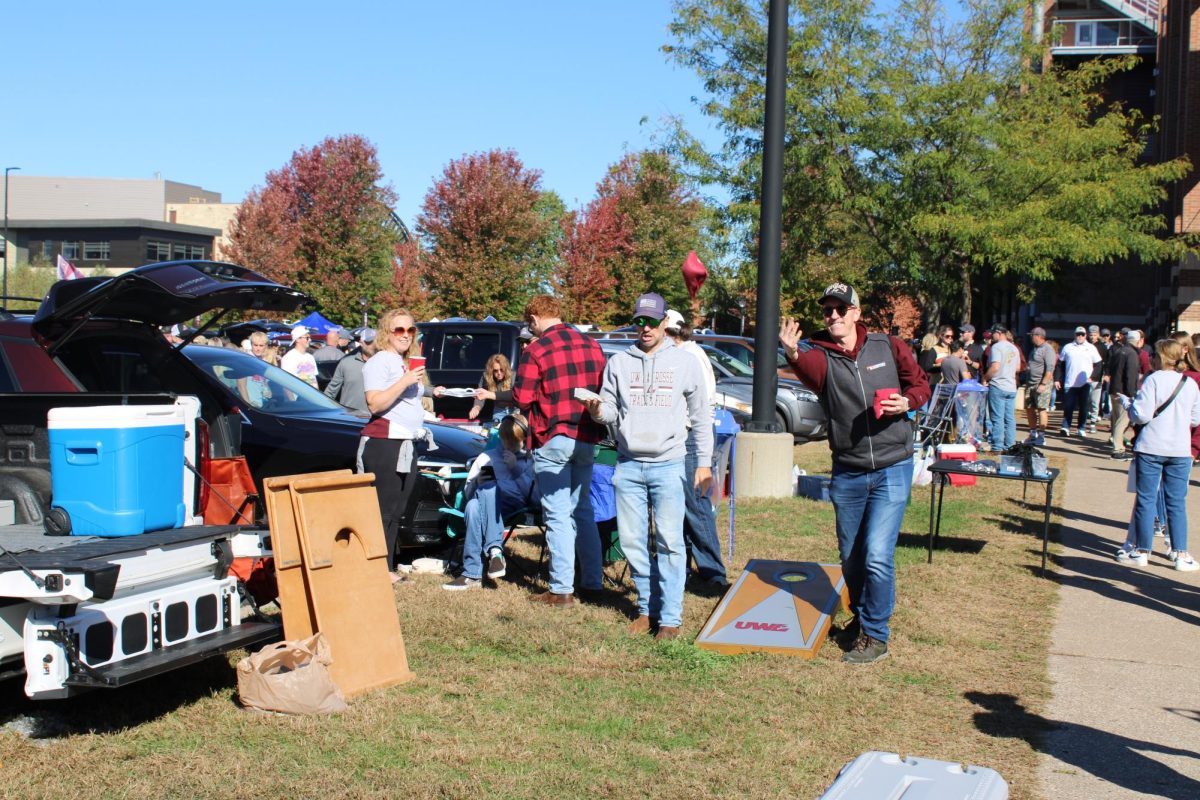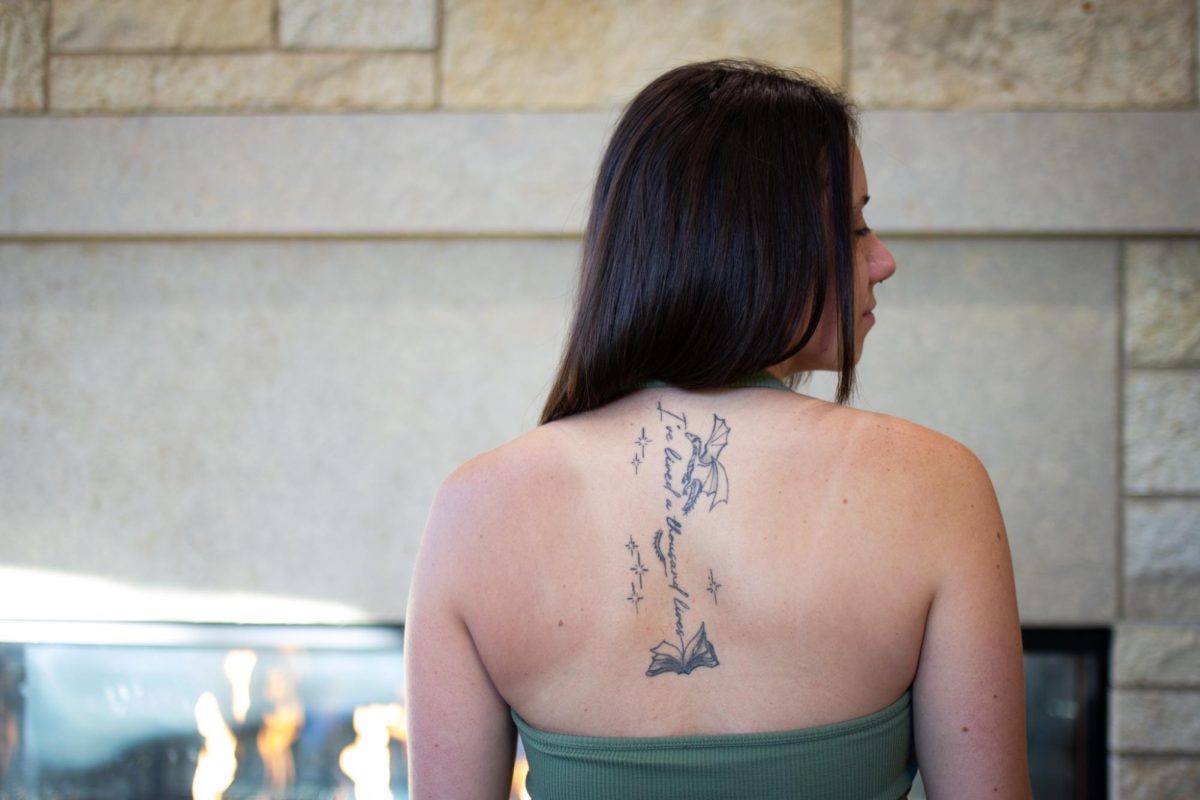Joe Anderson has been a professor of theatre and dance at the University of Wisconsin-La Crosse for the last three decades. Anderson began teaching at UWL in 1991 and was Chair of the Theatre and Dance department from 2009-2021.
Born in St. Paul, Minnesota, Anderson’s passion for theater began when he was in grade school. “I was cast as a ‘Litter Critter’ and wore a black trash bag as a costume,” said Anderson.
From that moment, Anderson knew design was what he wanted to do.
He pursued an undergraduate degree in theatre arts at Minnesota State University at Mankato. While his degree was in theatre performance, Anderson was required to take classes on costume and makeup design. Anderson credited his costume-building skills to his costume mentor at the time, Rick Donnelly, who helped Anderson tap into his creative side.
Anderson went on to earn a master’s degree in scenography with an emphasis in costume/makeup design at the University of Minnesota, where he worked as a design assistant for internationally known designer Desmond Heeley. “I really identified with how he designed, his process and how he worked with actors. He was very kind to me as a young designer,” said Anderson.
In his final semester at graduate school, Anderson learned of an opening at UWL by eavesdropping on a conversation in the costume shop. As it turned out, Anderson’s roommate from undergrad had ended up on the scenic and lighting design faculty at UWL; he recognized Anderson’s name and convinced the committee to ask for Anderson’s portfolio.
“I don’t know that my resume, on its own, would have gotten me an interview. They offered me the job while I was at the interview—this was 1991, different times,” said Anderson.
Anderson and his wife, Mary Leonard, former professor of theatre and directing at UWL who retired last year, initially began working in the La Crosse area to gain experience in their fields.
“When we moved here it was for my job at UWL, but since Mary also had her [master’s degree] in theatre, UWL hired her as adjunct to teach some classes and direct productions. We had originally intended to only stay a couple of years as a ‘starting point’ to our careers, but we fell in love with La Crosse and of course, made close friends here,” said Anderson. “It’s been wonderful helping to build a program, working on productions…we really love working together.”
Anderson has designed costumes and makeup for over 150 productions during his time at UWL, yet always continues to look forward to the next. When asked about one production that stood out to him, Anderson said “26 Pebbles” by Eric Ulloa.
“[UWL] was the first university to produce the work, and Eric [Ulloa] came to UWL and worked with the cast. ’26 Pebbles’ is about the Sandy Hook mass shootings…it was an emotional journey from start to finish,” said Anderson.
Anderson’s costume design process begins with reading the script for the show, making notes on references to specific costume requirements and initial ideas he has. Weekly production meetings with the director and design team continue the process, until sketches come to life in the costume rendering.
Anderson mentioned his favorite part of the production process was watching the costume material go from folded-up fabric to being worn on-stage. “The truth is, for me, until I see the fully realized costume, complete with the actor, I’m never really sure it’s going to work,” said Anderson.
While he considers staying true to his design as an important part of the production process, Anderson also understands how the costumes aren’t just for him or the audience to see. “My goal is for the actor to be comfortable in the costume and to look as good as possible within the world of the [production].”
Anderson was Chair of the Department of Theatre and Dance for 12 years. While he was chair, the department only included the theatre program. One of Anderson’s goals during this time was to develop a dance program that would keep students from leaving UWL for another school with a dance program.
“Our musical theatre emphasis was deficient without [dance]. I tried for 10 years with various deans and was unsuccessful, mostly because I felt they were not willing to bring this new minor forward. New programs are difficult for a variety of reasons, but it was frustrating and defeating,” said Anderson.
“It wasn’t until Dean Kunkle, now interim Provost Kunkle, came to UWL that the idea got some traction. Kunkle understood the importance of dance within our program and was willing to work with [our department] to bring it to UWL.”
With the help of Kunkle, the College of Arts, Social Sciences and Humanities (CASSH) Deans office, the dean/chair of the Exercise Sports Science (ESS) program at the time and Krista Shulka, current academic department associate for the department, Anderson was able to bring the dance program to UWL before he stepped down as chair.
Dance is now one of the fastest-growing minors at UWL and as expected, has boosted the musical theatre emphasis major within the Department of Theatre and Dance. The program has grown enough to perform its own concert of dance with choreography led by Professor Ashley Dobrogosz.
Anderson is also passionate about wellness and was on the Wellness Weekend Task Force (read more about Wellness Weekend here), but left after the decision to eliminate a day off for students.
“My opinion is that for [Wellness Weekend] to be effective…a true break is needed—not more programming. One day does nothing. Students will still have homework they’ve put off or need to do in order to not fall behind and have work outside of school,” said Anderson.
When asked what wellness looks like for Anderson, he said, “When possible, a healthy balance between work and life.”
Anderson also mentioned how art plays a role in his wellness. “Art is how many of us relax, express our true selves. It allows us to escape from our stress…and breathe. Art brings us joy and for many, meaning to life.”
At the end of this school year, Anderson will be retiring from his position at UWL. “I don’t view retirement as the ‘end’ of anything…I have loved and been grateful for my career, but this is not my life. My life is much bigger.”
“I will continue to work in theatre, but perhaps more immediately, I also have a beautiful guitar that is begging me to learn to play.”
Anderson wishes for his students to follow their hearts and enjoy their lives, as well as be open to new people and experiences—“especially the scary ones,” said Anderson.
As for students who may have had theater experience before college but are nervous about taking a theatre design class, auditioning for a production, or stepping into the scene and costume shops, Anderson offers helpful advice.
“Just jump in! Theatre has always been a world where everyone is welcome, where no one person can achieve on their own what the talents of many can produce. We need your talents! Maybe you’ll discover [theatre has] filled a void you didn’t even realize was empty.”

